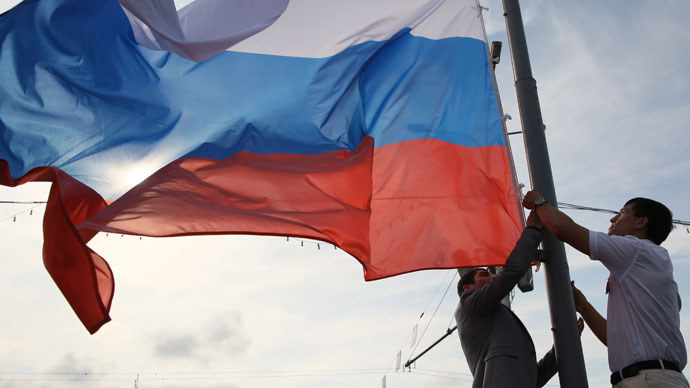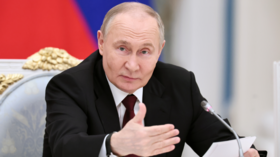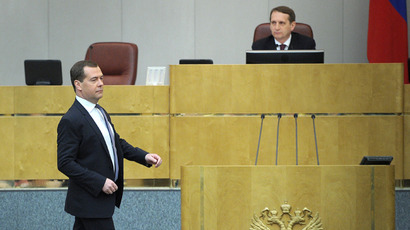Russia's up 6 points in the world competitiveness ranking

Russia has improved its competitiveness profile in 2013, taking 42nd position from the total of 60. However, since 2004 the situation changed little, with the ‘oil curse’ remaining a stumbling block to better performance.
Positioned between Latvia and Peru in 2013, Russia went up 6 places on a competitiveness ladder, designed by the Switzerland-based IMD World Competitiveness Centre. The US regained its top spot with the financial sector rebound and lots of technological innovation. Switzerland and Hong Kong took 2nd and the 3rd positions.

The United Arab Emirates had the biggest breakthrough in 2013, as it jumped to 8th place from 16th. Asian powerhouses – China (21) and Japan (24) – also made progress, with the latter appearing to be enjoying the first fruit of Abenomics, the report said. Most of Europe remained mired in austerity measures, which is eating into the growth prospects in the region. And BRICS club, enjoyed mixed fortunes,remaining “lands of opportunities," as Professor Stéphane Garelli, director of the IMD World Competitiveness Center, put it.
The IMD ranking is compiled on the basis of
statistics and interviews with 4200 company managers, about 100
of them are Russians.
The best progress in Russia was made in terms of
the country’s employment, as it went up to 13th place from 27th.
In 2012 Russia’s unemployment rate stood at 5.5%, while the
average figure for the countries ranked by IMD was 8%. Youth
unemployment at 13.2% was twice as low as the world
average. However, Russia’s labor market as a whole doesn’t look
rosy, as better employment was primarily due to the black
economy, while in the legal one the number of people in work
slid, as Vedomosti quoted Valery Mironov from the Development
Center of the Higher School of Economics.
Among other Russian strong points were a low government debt, low
tax on individual's income, stable interest rates, the education
level and employee’s qualifications. Exports, the pension system,
capital market, bureaucracy, as well as low acceptance of
innovation and poor demographic and healthcare indicators were
among the country’s drawbacks.
In almost a decade Russia’s ranking remained almost unchanged, as
in 2004 the country was in 41st place. Russia's main problem is
evident and clear: a low level of economic diversification and
strong dependence on commodity prices, Garelli explained.
Though a move upwards in the competitiveness ranking is generally
positive, most of Russia’s perspective criteria remains without
much progress or declining, agrees Anna Bodrova, an analyst at
Investcafe. “To move up the ranking due to macroeconomic
indicators isn’t very difficult, but both business regulations
and its quality and efficiency remain Russia’s weak spots. … the
effect from developing these areas will enable Russia go up the
rating another 8-12 points,” Bodrova explained.

‘Competitiveness and austerity: the divorce?’
One of the key issues of the 2013 IMD report is that
competitiveness could hardly be compatible with austerity.
"While the euro zone remains stalled, the robust comeback of
the US to the top of the competitiveness rankings, and better
news from Japan, have revived the austerity debate,” said
Garelli.
“Structural reforms are unavoidable, but growth remains a
prerequisite for competitiveness. In addition, the harshness of
austerity measures too often antagonizes the population. In the
end, countries need to preserve social cohesion to deliver
prosperity,” he added.
The need to stimulate growth rather than impose draconian cuts
is becoming increasingly recognized by the key
policymakers across Europe . But while the need to find a
balance between cuts and growth now seems to have become evident,
a golden middle remains a tricky thing to find.
“The trouble is that no one knows where this balance lies. We
are in uncharted territory now and everyone is feeling their
way,” Ben Aris, editor-in-chief at Business New Europe, told
Business RT earlier.













